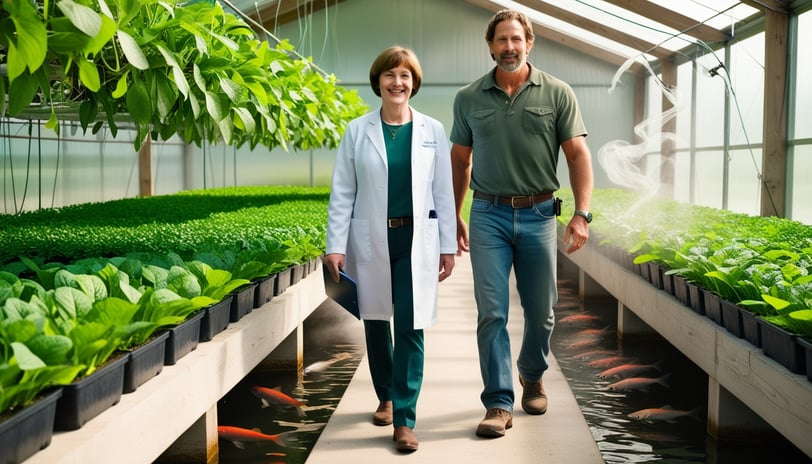Black Soldier Fly Larvae: A Circular Economy Approach to Addressing Food and Organic Waste in Canada
Medhat gad
10/17/20242 min read


Canada faces a significant challenge in managing its food and organic waste. As a nation with a growing population and a complex food system, the volume of such waste is substantial. Black soldier fly larvae (BSFL) offer a promising and sustainable solution to this problem, aligning with the principles of a circular economy. This report explores the potential of BSFL to address food and organic waste in Canada, contributing to a more sustainable and resource-efficient future.
The Circular Economy Approach
A circular economy aims to minimize waste and maximize resource efficiency by designing products and systems that promote reuse, repair, and recycling. BSFL can play a crucial role in this approach by:
Diverting waste from landfills: BSFL can efficiently process a wide range of food and organic waste, reducing the amount of material destined for landfills.
Nutrient recycling: BSFL-derived products, such as biofertilizers and animal feed, can be used to regenerate soil and reduce the need for synthetic inputs.
Creating value from waste: BSFL can transform waste into valuable resources, contributing to a more sustainable and profitable food system.
The Potential of Black Soldier Fly Larvae
BSFL possess several unique characteristics that make them ideal for food and organic waste management:
Efficient decomposers: BSFL rapidly consume organic matter, reducing waste volume and accelerating decomposition.
Nutrient-rich biomass: The larvae produce a high-protein biomass that can be used as animal feed or for producing biofertilizers.
Reduced odors: BSFL effectively control odors associated with organic waste decomposition.
Pest control: BSFL can help reduce populations of pests, such as flies and cockroaches, that are often attracted to organic waste.
Applications in Canadian Context
BSFL can be applied in various Canadian settings to address food and organic waste:
Municipal waste management: BSFL can be used to process food scraps and other organic waste collected from households and businesses.
Agricultural sector: BSFL can help manage food processing waste, crop residues, and livestock manure.
Food service industry: Restaurants and food manufacturers can use BSFL to reduce food waste and generate valuable byproducts.
Benefits and Challenges
Implementing BSFL-based waste management systems offers several benefits:
Environmental sustainability: Reduced landfill waste, greenhouse gas emissions, and water pollution.
Economic opportunities: Creation of new industries and jobs related to BSFL production and utilization.
Community engagement: Opportunities for community involvement and education on sustainable waste management.
However, there are also challenges to consider:
Scaling up: Implementing large-scale BSFL operations may require specialized infrastructure and expertise.
Public perception: Overcoming negative perceptions about insects as food or feed sources may be necessary.
Regulatory framework: Ensuring compliance with relevant regulations and standards is essential.
Conclusion
Black soldier fly larvae offer a promising and sustainable solution for addressing food and organic waste in Canada. By incorporating BSFL into a circular economy approach, Canada can reduce its environmental footprint, promote resource efficiency, and create new economic opportunities. As research and development continue, BSFL are likely to play an increasingly important role in shaping a more sustainable future.
Sustainability
Transforming waste into sustainable protein solutions daily.
Innovation
Impact
+1(438)-927-5905
© 2022. All rights reserved.
info@canadacleantechs.com
